… and what you have heard from me in the presence of many witnesses entrust to faithful men, who will be able to teach others also.
2 Timothy 2:2
It seems impossible to believe that Overseas Instruction in Counseling is already a little more than 10 years old. When, in the Fall of 2005, Susie and I began to envision a ministry that would train pastors around the world in biblical sufficiency-based soul care, we never could have imagined the ways God would open doors of opportunity and expand the ministry we began in June, 2006.
Now, just more than 10 years later, our 9 OIC missionary families are currently serving in 17 nations and are conducting 27 training programs. We’ve completed graduate degree programs (MABC) in Egypt and Lebanon and are now continuing such programs in Jordan and Ukraine. A new MABC begins in the Philippines in July. New missionaries and additional fields of service are on the horizon.
The initiation of a new year – I’m writing this on January 6 – has me reflecting on some of the lessons we’ve learned as we’ve been entrusted by our Lord to train thousands of Christian leaders in the nations of the world for a decade.
Cultural learning is never finished.
We consistently hear two things from our national partners: 1) Americans are arrogant, and 2) Americans think we’re stupid.
The first assessment stems from and is strengthened by the failure of most Americans to take the time to get to know a culture in which we desire to serve. As a result, American-developed biblical counseling training programs are usually not adapted, in content or delivery timing, to the host culture. Only biblical humility can engender cultural sensitivity.
The second assessment stems from and is strengthened by training programs that rarely go beyond the introductory level. This seems especially true when our training must be done through interpretation. This does not mean that the cross-linguistic nature of the training exercise causes Americans to think the national hearers are less intelligent, but it does mean that American biblical counseling trainers who travel overseas often mistakenly believe that they are the first voice their audience has ever heard on the issue. In our highly-connected world, this is rarely true.
I was recently asked, “How thoroughly do you understand the culture of [name of nation]?” My response? Not nearly thoroughly enough! But that could also be said of my cultural understanding of Hungary, a country in which Susie and I lived briefly and that I’ve visited 34 times since 1995.
If American-made biblical counseling training programs emphasize the concept of building relationships with—i.e., climbing into the world of counselees, listening carefully and actively to understand the challenges of their lives (and all do)—how much more should these skills be employed when investing the time and money necessary to travel to and train foreign nationals?
Copy/Paste is easier – but not better – than cultural specificity
Then, if cultural learning is vital, what would be a worthy and appropriate goal of international biblical counseling training? And if cultural specificity is to be prioritized, should we be seeking to create mirror images of American training programs and certifying organizations in other cultures?
The strategic objective of OIC is “to assist in the initial creation and/or continuing development of national, culture-specific, biblical counseling certifying organizations.” Stipulating that certification, a valuable quality-assurance mechanism, is a worthy outcome of biblical counseling training, we believe that a nationals-created certification protocol has determinative advantages: 1) The necessary ingredients are adapted to the culture in which the certification will be implemented. 2) It will be the result of necessarily difficult and collaborative work by a team of well-trained nationals. 3) It will, therefore, give “ownership” of the product to those who invest in its creation. 4) It will allow nascent biblical counseling certifying organizations to address the already-identified but not-yet-addressed weaknesses that exist in some American-based certification systems.
We imagine that American ministries will soon be learning from those foreign national biblical counseling organizations that eschew the ease of the copy/paste option and that develop robust, culture-specific, biblical counseling certification protocols.
Ministry partnerships must include shared responsibilities and prepare nationals for our leaving.
Finding a place in the world to conduct biblical counseling training is easy. Easy, that is, if, like others before us, we commit to pay for everything! One ministry leader told me that he could bring 1,800 pastors to his location if only OIC would provide transportation help, room-and board, and a gift book for each pastor! I tried to be gracious in explaining to that man that even if OIC had a million dollars in the bank (and we don’t!), I wouldn’t do it. Those pastors would simply be enjoying an all-expense-paid vacation!
Our policy and agreement with our foreign national partners is that OIC provides teachers and teaching. The partner does the rest. In other words, our teachers raise the funds to fly to their ministry location and provide the student handouts and “prepared-for-translation” presentations. Our partner ministry is responsible to provide the appropriate facility, the marketing, the support staff, the ground transportation, and the room-and-board for our team of 2-3 couples.
The benefit of maintaining this approach seems obvious – the nationals are not dependent on American funding for their training programs. More importantly, once emerging leaders of an indigenous biblical counseling movement are identified and discussions concerning the initiation of their certifying organization have begun, they will have no expectation of on-going American financial assistance for its launch and development. This does not mean that we “abandon the baby on the doorstep.” On the contrary, we remain available to help—i.e., coach—the leaders of the new organizations to whatever extent they ask for our involvement. One of the great joys of my ministry this month will be traveling around the Philippines speaking at a series of fund-raising banquets to support Biblical Soul Care Philippines.
While both are valuable, there is a world of difference between “talking about biblical counseling” and “training biblical counselors.”
Since the very beginning of the modern biblical counseling movement, gifted men and women have traveled to far-away places to conduct biblical counseling conferences – what I call “talking about biblical counseling.” These are necessary and valuable introductions to the concept of personal ministry built on biblical sufficiency. The intimidation pastors and other Christian leaders who lack university degrees in psychology sometimes feel is mitigated by the realization that God’s “divine power has granted to us all things that pertain to life and godliness” (2 Peter 1:3). Those we train feel encouraged and emboldened by the truths like those found in 2 Tim. 3:16-17, Col. 1:28, and Gal. 6:1-2.
But “training biblical counselors” requires an on-site, multi-modular, curriculum-driven, between-sessions-projects-inclusive, practicum-inclusive, strategic-objective-focused, pastor-and-church-strengthening program. (Yikes! I just ran out of hyphens!)
In the very first session of Module 1 (M1) of our Church Leadership Training Curriculum we emphasize this point: This is NOT a series of seminars or conferences. After M1 there will be “Projects for Growth.” (I remain on a crusade to eliminate the word “homework” from the biblical counseling nomenclature. I find it intimidating, even punitive.) If the M1 PFGs are completed, our participants may return six months later for M2. If not, they may not. The same procedure is followed after each of the succeeding modules.
Although one leads to the other, there is an important difference between “training biblical counselors” and “training biblical counselor trainers.”
This brief article ends where it began, by referring to 2 Tim. 2:2. The four-generations-of-disciples-in-one-sentence construction of this verse illustrates that it’s never enough to just “entrust to faithful men”; they must be given the tools to “teach others also.” Until we accomplish the goal of trainers training more trainers, we’ll remain only one generation away from extinguishing the movement so many have sacrificed to build.
These reflections are only the beginning of all the observations we’ve made after a million miles of traveling around the world and serving fellow-believers in dozens of nations over the last decade. I’ve often said, “I feel like a rookie jockey on the fastest horse in the field. I haven’t a clue what I’m doing, but I’m hanging on for dear life and really enjoying the ride.” God has been good to give us growing fruit for His glory from our meager efforts.
Join the Conversation
How can international biblical counseling trainers do a better job of cultural learning? Are we (Americans) doing too much for too long? How do the curricula for “training counselors” and “training trainers” differ?


